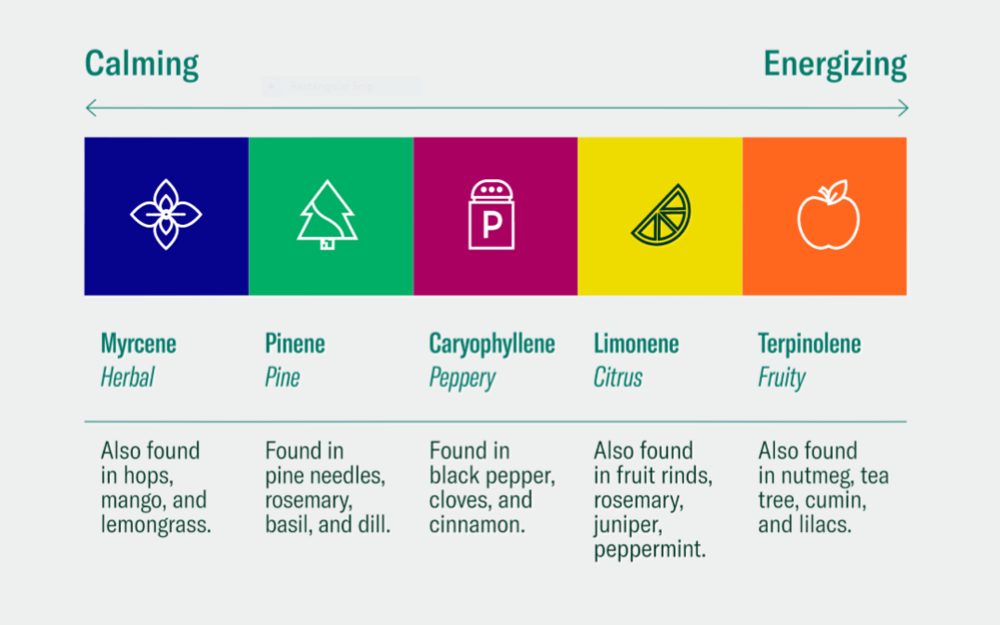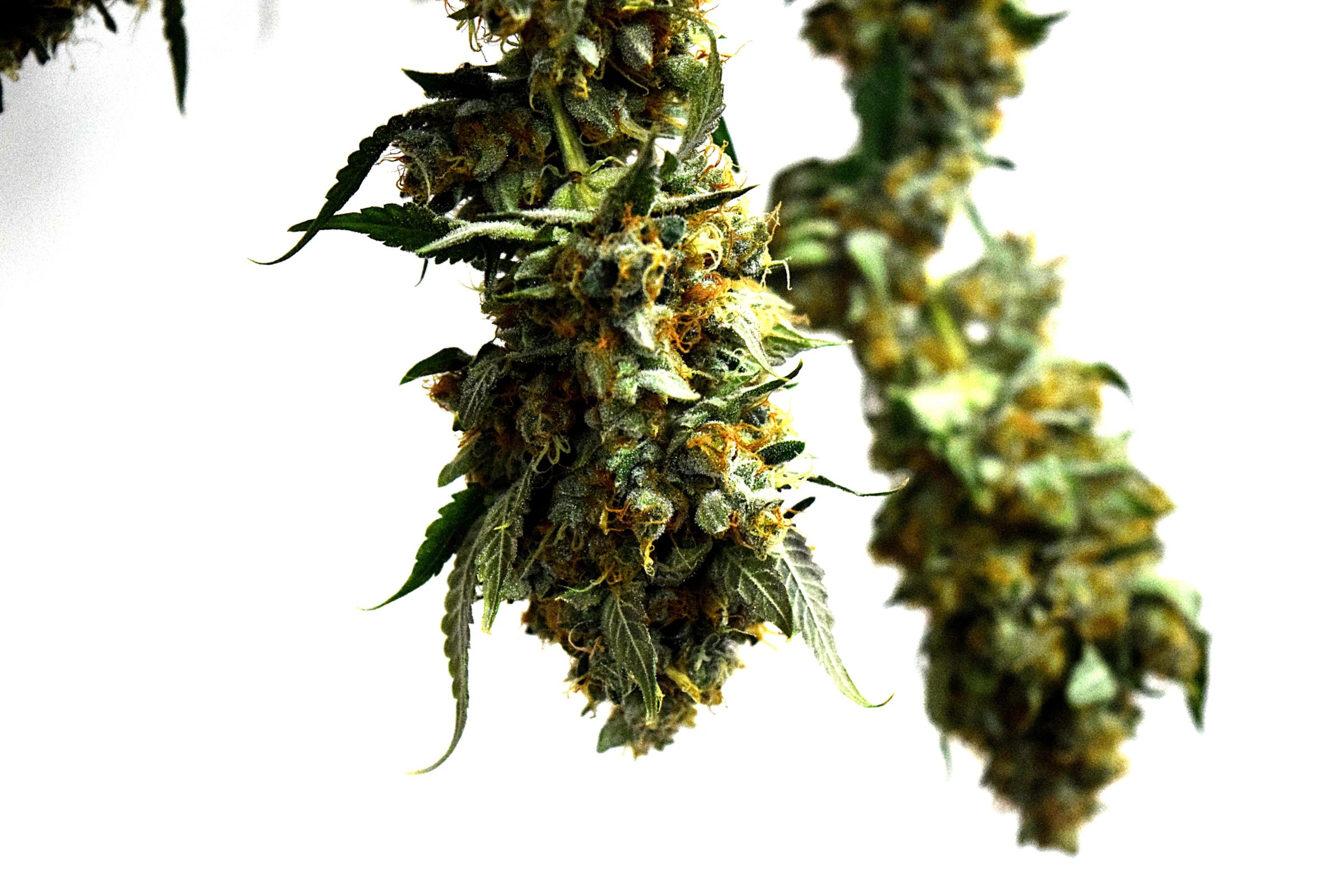
CBD gummies are an easy way to enjoy CBD. They are easy to do. You can start with a small amount and increase it if you need more. There are a variety of flavors to choose from, too.
Third-party lab testing is important when selecting a gummy. Additionally, ensure it is a broad spectrum CBD chewy. This means that it contains all the cannabinoids found on hemp, with the exception of THC. While this is not the only thing to look for, it is a good place to start.
You should also check for genuine terpenes in gummy. Terpenes refer to natural chemicals that are found in plants. Some of them have other health benefits such as anxiety relief and anti-anxiety. But it can be difficult to tell what kind is right for your body.

Ideally, a gummy should contain no synthetic terpenes. This is because they may not have the same effects as the original version. However, you can still take a look at the ingredient list for any brand to make sure it's pure. It is also worth looking at the COA (Completely Oxygenated Asmount) of cannabinoids to find out how much each contributes to overall effects.
CBD is a good choice if you want to get your daily dose. Every gummy from the best brands should contain at minimum 25 mgs of CBD. Avoid gummies that contain too much THC. You will feel the most relaxed if you choose a gummy with full CBD spectrum.
Another thing to look for is a company that's transparent about the ingredients in their products. Ask for a copy their COA. Other things to consider include the amount and purity of cannabinoids, the quantity of CBD in the product, and the terpenes present in the gummy.
Many of the products on the market are just a mix of cannabinoids or artificial terpenes. It can be difficult to find the right terpenes for you. To find out what cannabinoids are contained in the gummies, it is essential to examine the COA.

If you are looking for a gummy that will help you sleep, another important thing to consider is whether the gummy contains a full range of CBD. These gummies contain all of the cannabinoids, phytonutrients, and other compounds found in the hemp plants. Also, make sure you check that the product is organically grown cannabis.
CBD gummies can also be found for immune support. These will help keep your immune system functioning at its optimum. They may contain Vitamin D3, Vitamin C, and Calcium, depending on the brand. They should also be made of organically grown hemp.
FAQ
What are the most common mistakes companies make when they try to enter the US market for cannabinoid products?
Uncertainty about the regulations for cannabis products is the first mistake. This could be a sign that your product formulation needs to be changed.
Unskilled labeling is the second. Know whether your product contains THC, CBD or both.
The third is how to package your product correctly. If your product contains THC, you need to ensure it is packed in child-resistant containers.
Even if your product doesn't contain THC, you must still comply with all packaging laws. There are many states in which cannabidiol is legal.
Finally, you should always keep track of any recalls on your products. If there is a problem with your product, it is important that you inform customers as quickly as possible.
Can CBD companies be a good investment?
This depends on your needs. They can be a great investment if it is money you are after. If however, you only want to invest in something that may help others, then no.
How can CBD products sold in a legally compliant manner by companies?
The FDA does NOT regulate hemp as an agriculture commodity. The Controlled Substances Act governs all other cannabis derivatives, such as marijuana. CBD has yet to be subject to specific regulations.
CBD is legal at the state level in 29 states, but federal law still considers it illegal. This creates uncertainty for businesses looking to sell CBD products.
The FDA has strict guidelines regarding how CBD products can be promoted. To make sure that CBD products are clearly disclosed about their THC content, the FDA has established strict guidelines. Without scientific evidence supporting this claim, CBD cannot be used to treat certain medical conditions.
In addition, the FDA requires manufacturers to submit detailed information regarding manufacturing practices and quality control measures. To prove safety and effectiveness, they require that companies conduct clinical trials.
Companies should consider these factors when developing their own marketing strategies.
Does CBD help with anxiety?
CBD oil is effective for treating anxiety because it interacts with certain receptors in the brain called CB1 and CB2. The endocannabinoid (Endocannabinoid) system regulates mood, stress and responses.
CB1 receptors are activated by chemicals released when we feel anxious. This receptor triggers the amygdala to activate, which is responsible in emotional processing.
When the CB1 receptor is blocked, the amygdala doesn't receive the signal to process emotions. People who use CBD have fewer negative emotions.
In 2017, a study showed that CBD can reduce anxiety in people with social phobia. Another study revealed that CBD helped reduce symptoms of PTSD.
A 2018 review concluded CBD has anxiolytic potential and could be used to treat generalized anxiety disorder.
Another study suggested that CBD may also help to reduce panic attacks.
Multiple studies have proven that CBD can actually increase anxiety levels in mice.
Researchers believe this discrepancy in animal data and human data could be due to differences between humans and dogs' responses to CBD.
CBD has not been shown to be safe long-term. But, experts are unanimous in their belief that CBD is safe when used according to directions.
Is the CBD industry saturated?
CBD industry is growing at over 25% per annum. This growth rate is expected to continue at least for five more years. The industry is forecast to grow from $2 Billion to $5 Billion by 2020.
Two companies are currently dominating the CBD market - GW Pharmaceuticals & Canndoc Ltd. Both companies have a focus on creating pharmaceutical-grade products. They haven't been very successful so far. Both are struggling to get traction on market.
Cannabidiol (CBD), an extract from cannabis, contains less than 0.3% THC. It doesn't produce any psychoactive effects. It is used to treat epilepsy and other conditions. It is often used as an dietary supplement.
There are many different types of CBD products available. Some are made using whole plant extracts, while others use isolated cannabinoids such as CBD.
These products share one common feature: they all contain low levels of THC.
They are now legal under US federal laws. This doesn't mean you shouldn't follow local laws when selling CBD-related products. Always check your state's laws regarding CBD products.
There are also several states that CBD products are prohibited. These include California, Colorado, Florida, Mississippi, Missouri, New York, North Carolina, Ohio, Oklahoma, Oregon, Pennsylvania, Rhode Island, South Dakota, Texas, Utah, Virginia, Washington, and Wisconsin.
CBD products shouldn't be used if you live in any of these states.
What is the difference in CBD prices between states?
Prices for CBD products can vary depending on where you live. The prices of CBD products can vary more than tenfold depending on where they are located.
In general, prices increase the further north you go. In Alaska, CBD is $35 per gram on average, while it costs $200 in Hawaii.
This trend is evident throughout the country. Prices range from $5 up to over $2,500 for a gram.
Why is this happening?
Prices vary because of different levels of regulation. Some states require CBD products to contain minimal THC (the psychoactive element of marijuana). Other states don’t care about how much THC is in CBD products.
This is why some companies decide to sell products in one country and then send them to another.
Is CBD a good idea to invest in?
As hemp-based products gain popularity, so does the market. There could be $1B worth of hemp products on the shelves by 2022.
It is also expected that the market will continue to grow at an annual rate exceeding 20% through 2020 when it reaches $2.5 Billion.
Hemp oil can be found in many beauty and health products, including lotions, shampoos and lip balms, moisturizers and body butters.
There are many companies that produce CBD-infused foods, snacks, pet food and dog treats.
CBD is legal in all 50 states. However, this could change very soon. As more research is conducted into the potential uses of CBD, more laws will likely be passed, making it easier for businesses to operate legally.
These factors make it clear that CBD investing can be a profitable venture.
Statistics
- A recent systematic review of human trials also reported that individuals with epilepsy receiving CBD (5–20 mg·kg−1·day−1) were more likely to experience decreased appetite than those receiving placebo (i.e., ~20 vs. 5% of patients) (ncbi.nlm.nih.gov)
- A recent study [161] also found that in vitro CBD treatment (i.e., ≤ 2 h exposure to 10 μM) induced ~40% vasorelaxation in isolated (pre-constricted) (ncbi.nlm.nih.gov)
- The inhibition of FAAH is predicted to lead to an increase in brain and plasma concentrations of AEA, which acts as a partial agonist at CB1R and CB2R, thereby increasing endocannabinoid tone [92, 110]. (ncbi.nlm.nih.gov)
- OralWhere HED is the human equivalent dose, and Km is a correction factor estimated by dividing the average body mass (BM) of the species (60, 0.020, and 0.150 kg for 11 humans, mice, and rats, respectively) and by its surface area (see: Nair et al. (ncbi.nlm.nih.gov)
- however, one study also found that these effects were virtually abolished when the original media (a nutrient broth agar) was replaced with one containing 5% blood (increasing the minimum concentration to ~160 μM CBD) [179]. (ncbi.nlm.nih.gov)
External Links
How To
What are the major issues facing the CBD industry in general?
The current market for CBD-based products is expanding at a phenomenal rate. However, this market is still full of challenges for businesses that want to expand. These include a lack of consumer awareness, high cost of entry, limited access to capital, and regulatory uncertainty.
Many consumers don't understand what CBD is and how it works. This means they are not able to make informed choices about whether or no to purchase CBD products.
Many CBD companies depend heavily on word of mouth marketing. This is expensive as they must pay advertising costs and to hire staff to market their brand.
High production costs are another problem facing new entrants in the CBD industry. High prices are a major problem for CBD products because of the high cost of raw materials. CBD oil can only be made if hemp is grown in the right climate and soil conditions.
Growing enough hemp to make CBD oil takes around $1,000 per acre. Many small farmers are unable or unwilling to invest in this product.
The lack of capital access is another obstacle new entrants to the CBD market face. Many people who want to start a business are discouraged by banks due to the stigma associated with the industry.
Last but not least, there is regulatory uncertainty regarding the sale and distribution of CBD products. There are no guidelines for how CBD products should market.
Although states have passed laws restricting CBD products sales, these policies are not yet national.
So far, only two states - Maine and Nevada - have legalized recreational marijuana.
However, some states like Massachusetts and Michigan are considering similar measures.
These changes could mean that CBD manufacturers will be more competitive.
Many entrepreneurs prefer to work at home over starting a business.